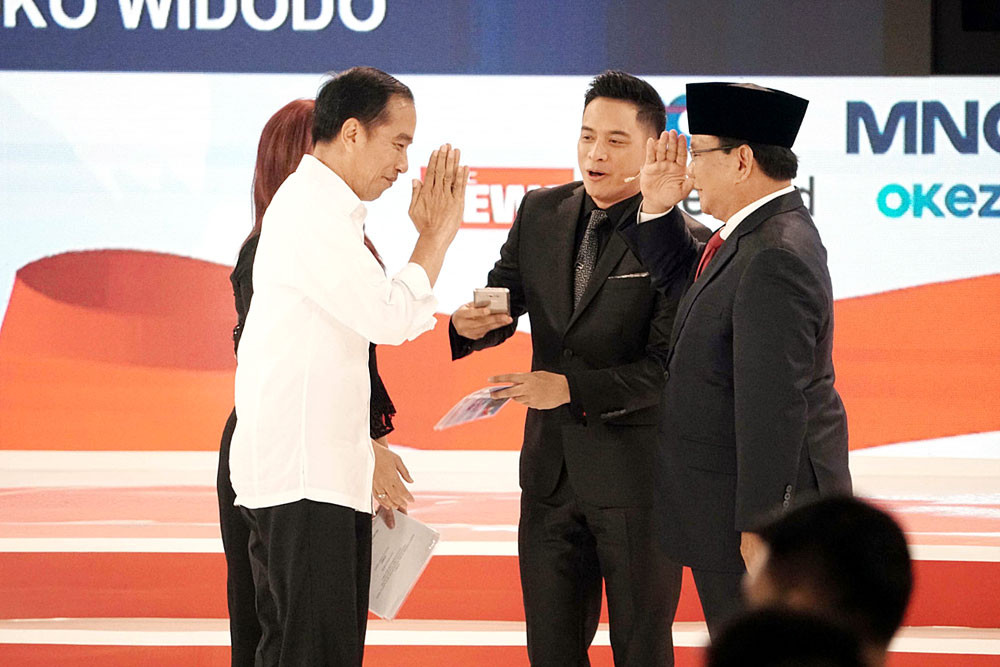
Whether election polls are a good predictor of election results is up for debate. Not all pollsters are created equal: Some are more credible than others. However, since reformasi political surveys have become such an integral part of our electoral democracy that even those who claim to no longer trust the pollsters are still taking them seriously.
That is why, with the April 17 presidential election approaching, public attention has been on the results of the latest election surveys. Is President Joko “Jokowi” Widodo still leading against Prabowo Subianto, his only rival in the race? Or is he losing ground in some regions?
If the election were held today, the incumbent would win by a double-digit margin against Prabowo, according to the latest political survey by the Centre for Strategic and International Studies (CSIS) released on Thursday.
The think tank polled 1,960 respondents between March 15 and 22 and found that the Jokowi-Ma’ruf Amin ticket had an electability rating of 51.4 percent, while the Prabowo-Sandiaga Uno pair was at 33.3 percent, giving the incumbent president an 18.1-percentage-point lead.
Of all the respondents, who were randomly selected from all provinces, only 1.2 percent said they were undecided, while 14.1 percent preferred to keep their political choices confidential.
The CSIS finding is consistent with the results of other political surveys, which have placed Jokowi as the man to beat. Even the most contentious survey, released by Kompas daily — the only one claiming that Jokowi’s electability is declining — has found that Jokowi is still leading the race by 11.8 percent.
At this stage, the odds seemed to be stacked against Prabowo. On paper, Jokowi could still win the election even if the Gerindra Party leader manages to get all the votes that are still up for grabs. It does not help that he has only three weeks to improve his electability.
However, the election is not over yet. In fact, it is now entering the most crucial period in which candidates are allowed to hold open rallies to win the hearts of voters. Consequently, it would be premature to say the results of the April 17 election are a forgone conclusion.
Undoubtedly Prabowo is facing an uphill battle, but he could still turn the tables. The issue is not whether we can trust the polls; anything could happen in the days before and even during election day and pollsters would no longer be able to capture the changing sentiments.
Prabowo has militant supporters who could mobilize swing voters or the undecided come voting day. In the 2017 Jakarta election and the 2018 Central Java election, the Prabowo camp surprised some pollsters who predicted their candidates would lose or gain few votes.
Jokowi’s supporters, meanwhile, are perceived to be less militant. With the balloting taking place before a long weekend, Jokowi could lose votes simply because his supporters are too lazy to go to the polls, let alone ask others to vote for him.
It is now a crucial time for the presidential contenders; we only hope both camps compete fairly.
https://ift.tt/2OzUQts
March 29, 2019 at 08:39AM
Tidak ada komentar:
Posting Komentar